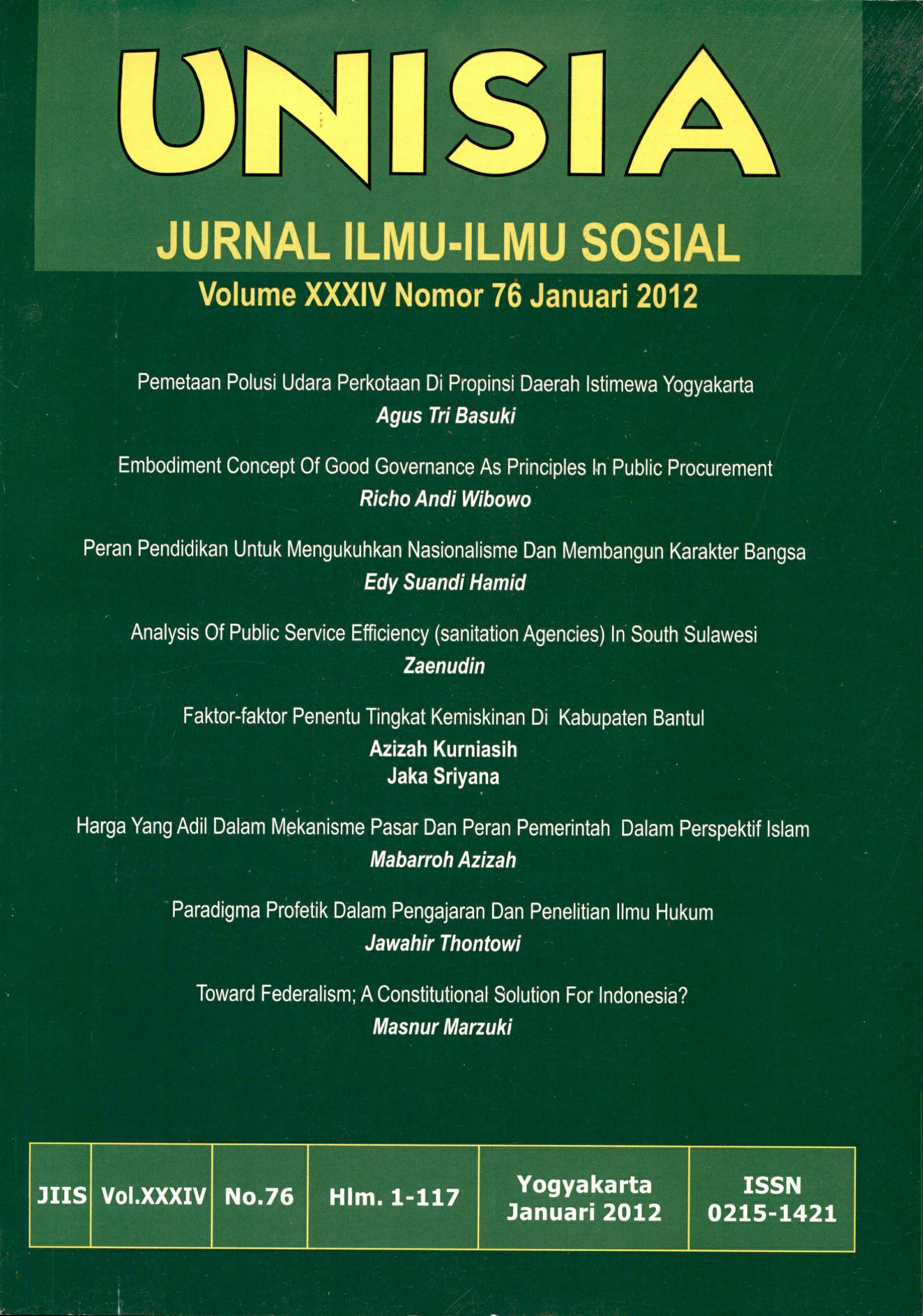Main Article Content
Abstract
This research is based on the following academic questions. The first is dealt with the problem of what is the function of concept paradigm in realitation to develop social sciences and legal jurisprudence. The second is concerned with the problem of how relevant does it Pancasila National Philosophy into a propetic paradigm for the purpose of teaching and research development. The third is why does it prophetic paradigm important to change situation of teaching and research development. This article concludes that a paradigm in respect to social sciences and legal jurisprudence is important to be used in order to facilitate a teaching and research in more inclusive dimension. So, it is impossible to radically change legal thought without taking into account believe system which inspires to understand concepts, methods and its analyses. The second is that Islamic values consists of iman, Islam, and ichsan do not contrave with basic phylosophy of Pancasila, so that an academic objective of legal Jurisprudence is not misely based on posltivisic theory. But, it is also important to take into account such approach as ontology, epistimology, and axiology accommoded into teaching and research development in respect to legal jurisprudence. Lastly that some partners of prophetic paradigm in legal jurisprudence concerns very much in effort to integrate a good person and a good law in teaching process and develop to exercise devine law and human made law in order to obtain a constructive concept of law and Justice are untiled at one.
Keywords: Paradigm, prophetic, positivism, legal Jurisprudence, Islam, Justice.
Article Details
- Authors retain copyright and grant the journal right of first publication with the work simultaneously licensed under a Creative Commons Attribution License that allows others to share the work with an acknowledgement of the work's authorship and initial publication in this journal.
- Authors are able to enter into separate, additional contractual arrangements for the non-exclusive distribution of the journal's published version of the work (e.g., post it to an institutional repository or publish it in a book), with an acknowledgement of its initial publication in this journal.
- Authors are permitted and encouraged to post their work online (e.g., in institutional repositories or on their website) prior to and during the submission process, as it can lead to productive exchanges, as well as earlier and greater citation of published work.




